Orgasms and more discussed at Sex Week
How to “have an orgasm and squirt it,” other topics discussed at W&L’s Sex Week
Programming by the Sexual Health Awareness Group promoted sexual health and identities.
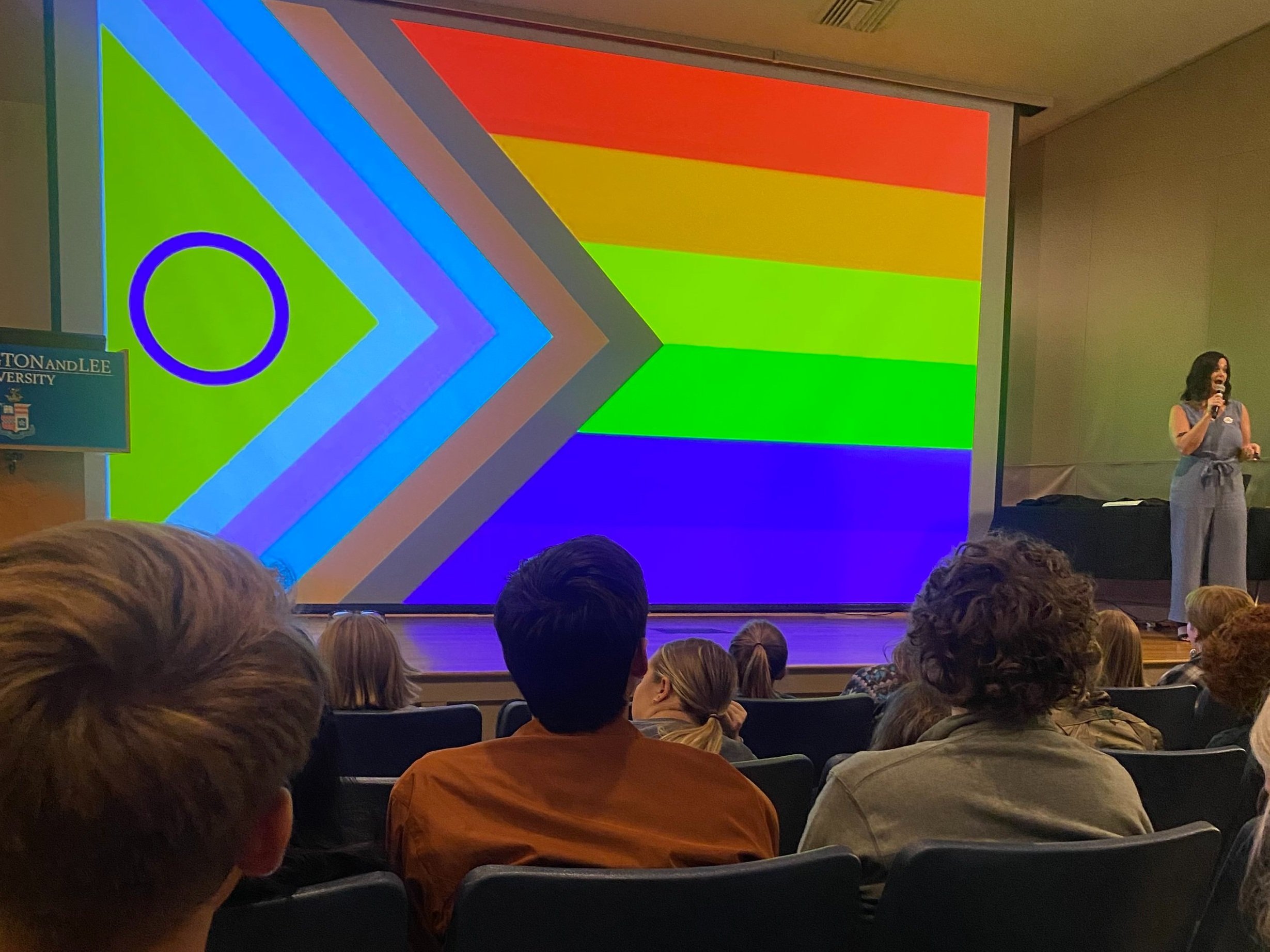
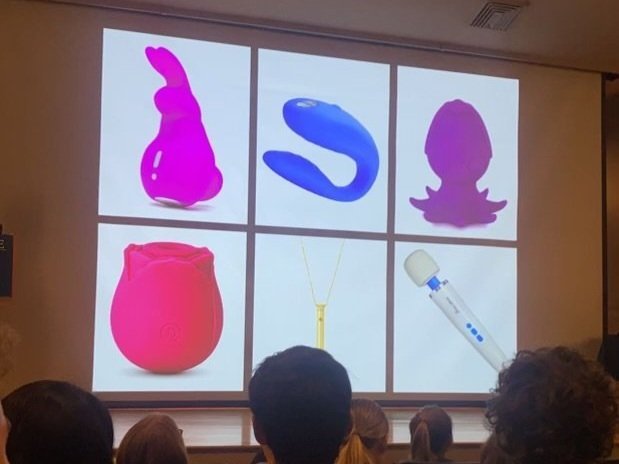
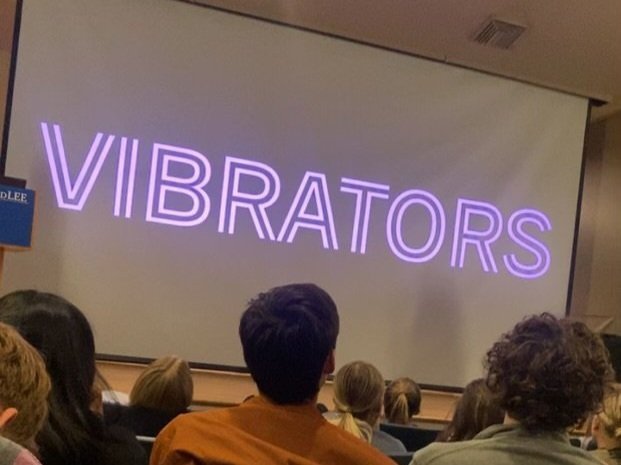
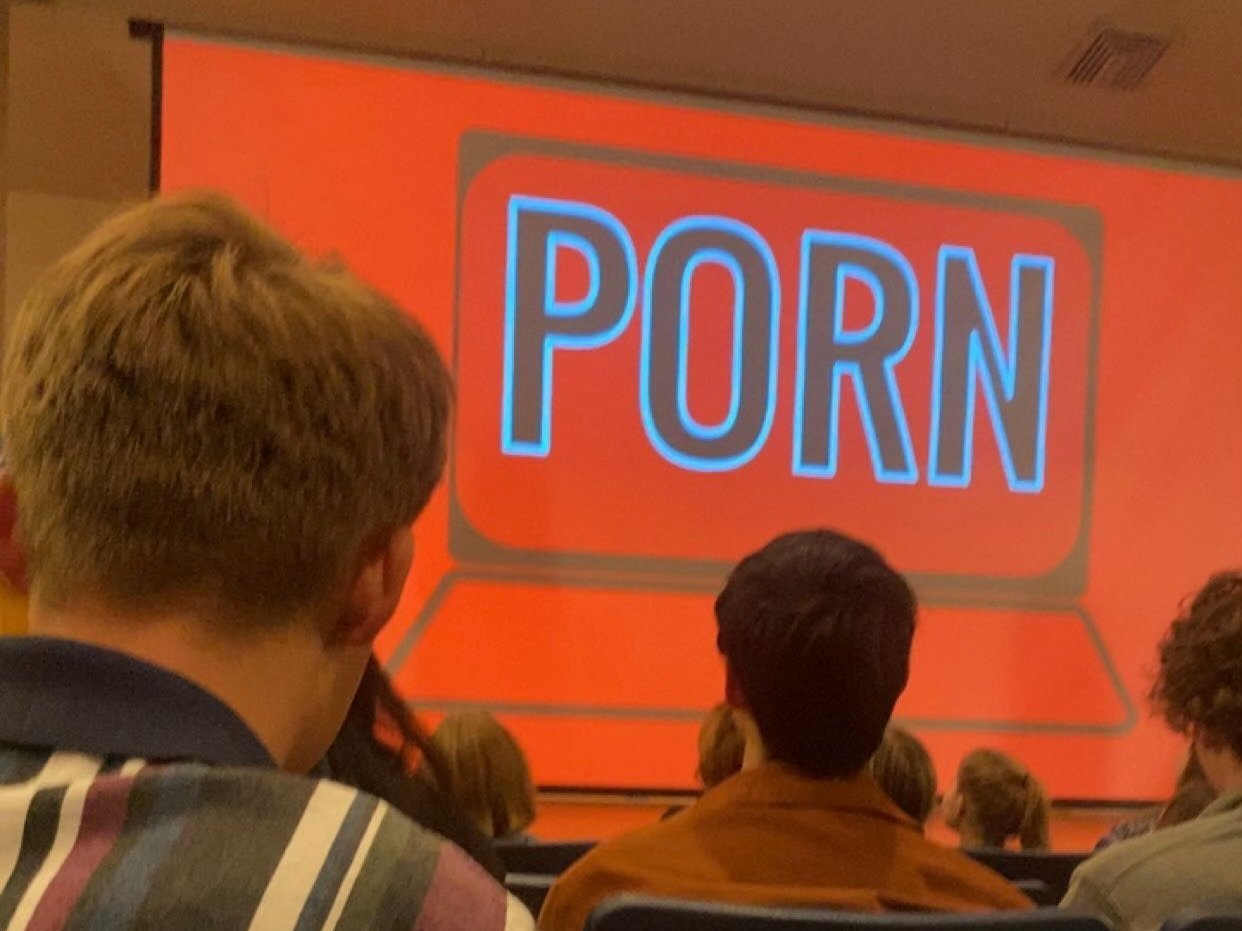
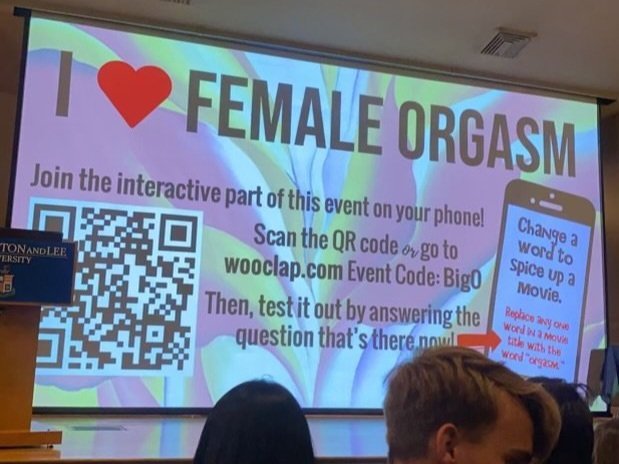
(Slides from Monday’s “I Heart the Female Orgasm” event. Source: The Spectator)
W&L’s Sexual Health Awareness Group (SHAG) recently held its eleventh annual Sex Week events, programming which featured lectures and discussions to improve understanding of sexual activities, sexual health, and sexual identities. This year’s theme was “You do you.”
The first session – “I Heart the Female Orgasm” – problematized the “Orgasm Gap,” the idea that men experience orgasms far more often than women.
Society imposes “these really unjust barriers for pleasure where there are some groups of people that can access pleasure pretty easily and for other groups of people, it's much more difficult,” facilitator Lindsay Fram said during the Monday, November 6 event.
Fram backed her position by asking the audience who, “in a typical heterosexual college hookup situation,” is expected to orgasm; the audience replied overwhelmingly that men, but not women, are expected to orgasm.
“By the end of this evening, you'll know how to increase the odds of an orgasm during partnered sex,” Fram said. “How to have your first orgasm if you never have? How to help your partner have an orgasm and squirt it. We will be talking about squirting tonight.”
SHAG’s programming continued on November 7 with “Healing Your Inner Child Sex Education Activities,” a session which explored how consent and other skills required for healthy sex can be developed as early as kindergarten.
(One of the activities featured at the “Healing Your Inner Child Sex Education Activities” session. Source: The Spectator)
Participants explored how consent is taught through four different stations, each featuring an activity used with different age groups. Activities included creating “will/want/won’t lists,” discussing sexual citizenship, coloring a “feelings body map,” and reading picture books from the We say what’s OKAY childrens’ series.
The next day featured a “movie night” during which SHAG screened an episode of Sex Education, a Netflix show which follows fictional high schoolers as they navigate their sex lives and realize their sexual identities.
SHAG held two events on Thursday, November 9: “Is It Okay to Lie to Get Someone into Bed? (And Other Questions on the Ethics of Consent),” a lecture given by W&L philosophy professor Angela Sun, was followed by a Trivia Night.
Friday night featured a “Sexy” rendition of W&L’s Friday Underground (FUDG), a substance-free program sponsored by the University on a weekly basis.
An “Aroace” student panel the following day concluded Sex Week — an “Aroace” person is both aromantic and asexual. According to the panelists, romantic and sex preferences are separate and exist along their respective spectrums.
Romantic bearings range from “alloromantic” – people who experience romantic attraction – to “aromantic” – people who do not experience romantic attraction. Similarly, attitudes toward sex range from “allosexual” – people who experience sexual attraction – to asexual.
Panelists clarified that asexual people still perform and enjoy sexual activities, and they expressed concern about a society that is “allonormative.” They also noted how society tends to erase “Aroace” people and stereotype them as cold, aloof, lonely, and oblivious.
SHAG requested that The Spectator not disclose the identities of the “Aroace” panelists or other representatives of SHAG.
According to a SHAG representative, “Sex Week is important because of the lack of quality sex education that many students have had before coming to college.” Students need better knowledge as they will be “engaging in more sexual experiences as adults,” according to the representative.
“The goal of the week is to break down stigma, to develop an open dialogue on campus, and to encourage people to learn more about everything related to sex, sexual health, and consent,” the SHAG representative said. “We aim to reach people of all identities in our programs and to support inclusivity both within and beyond the W&L community.”
In interviews with The Spectator, attendees echoed SHAG’s rational: Julie Charles, ‘27, said that her “high school sex ‘education’ lacked education.” “So it was just like we were thrown into adulting without understanding [whether] condom, no condom,” Charles said.
The “I Heart the Female Orgasm” session was produced by outside organization Sex Discussed Here! and was facilitated by sexuality specialists Marshall Miller and Lindsay Fram.
“Sex Discussed Here! Provides pairs of sex educators to present smart, funny sex education programs” on topics including sexual health, sexual assault prevention, female orgasms, consent, and LGTQ issues, according to the group’s website.
Facilitator Marshall Miller holds a degree in Sexuality and Society from Brown University, and Lindsay Fram holds a Master of Public Health from Tulane University.
Tuesday, November 7’s “Healing Your Inner Child Sex Education Activities” was run by Project Horizon, a Lexington, VA organization “dedicated to eradicating domestic, sexual, and dating violence through the empowerment of survivors, and by being a sanctuary for victims.”
“The other side of our program is our outreach programming, [where] we do things like prevention,” said Mikhala Stafford, Project Horizon’s Campus Services Coordinator, in an interview with The Spectator. “We go and do events like this at colleges,” and focus on “interpersonal things” shown by research to reduce sexual violence, she said.
Stafford noted that Project Horizon’s primary and secondary school programming does not include direct discussions of sex, instead focusing “on social-emotional learning.”
The week’s other events were facilitated directly by SHAG.
SHAG is a recognized student organization and received $7,250 in funding from the Executive Committee for the current academic year, the 13th largest student organization budget allocation. According to a recent Ring-tum Phi investigation into EC budget allocations, SHAG’s budget grew by 2000% since 2017.
“I Heart the Female Orgasm” was heavily attended and filled most of Stackhouse Theater. However, “Healing Your Inner Child Sex Education Activities,” SHAG’s movie night, and the “Aroace” student panel drew only a handful of attendees. The Spectator was unable to attend the other three events.
(Sex Week Schedule, Source: Campus Well Email)
Caden Brousseau, ‘27 also contributed to the reporting of this article.



